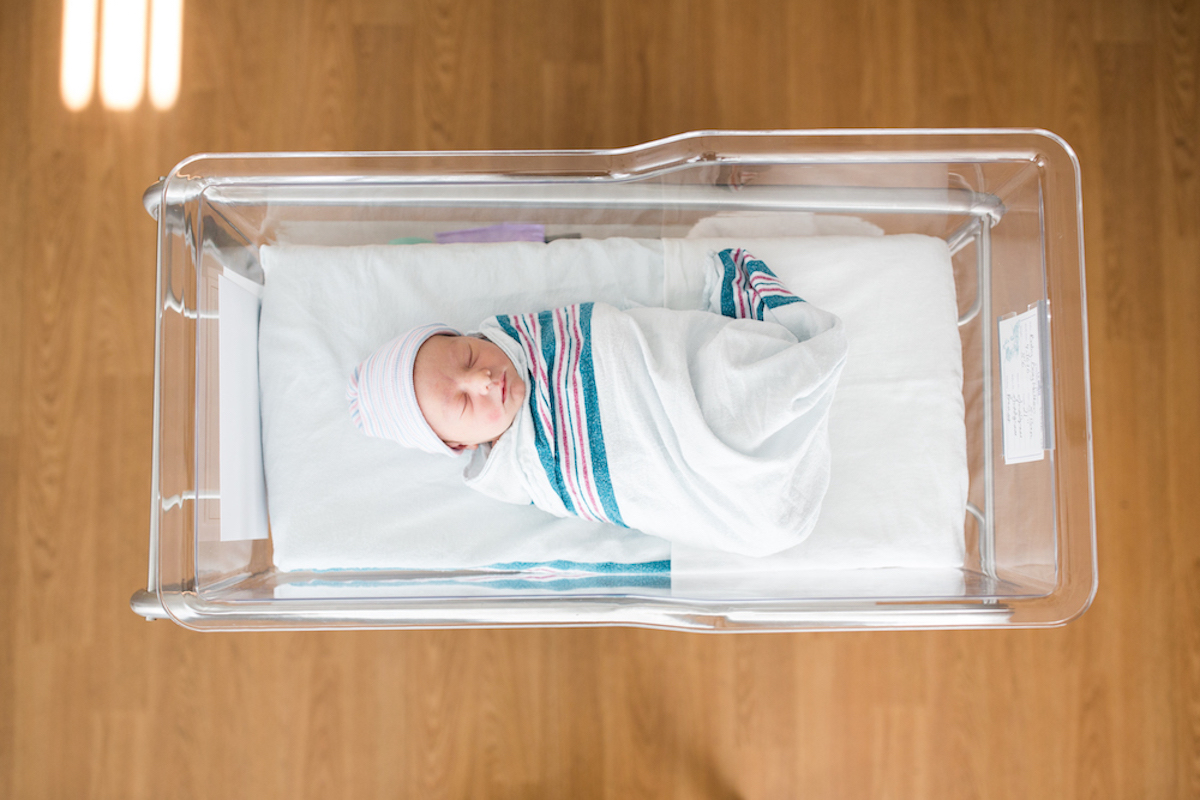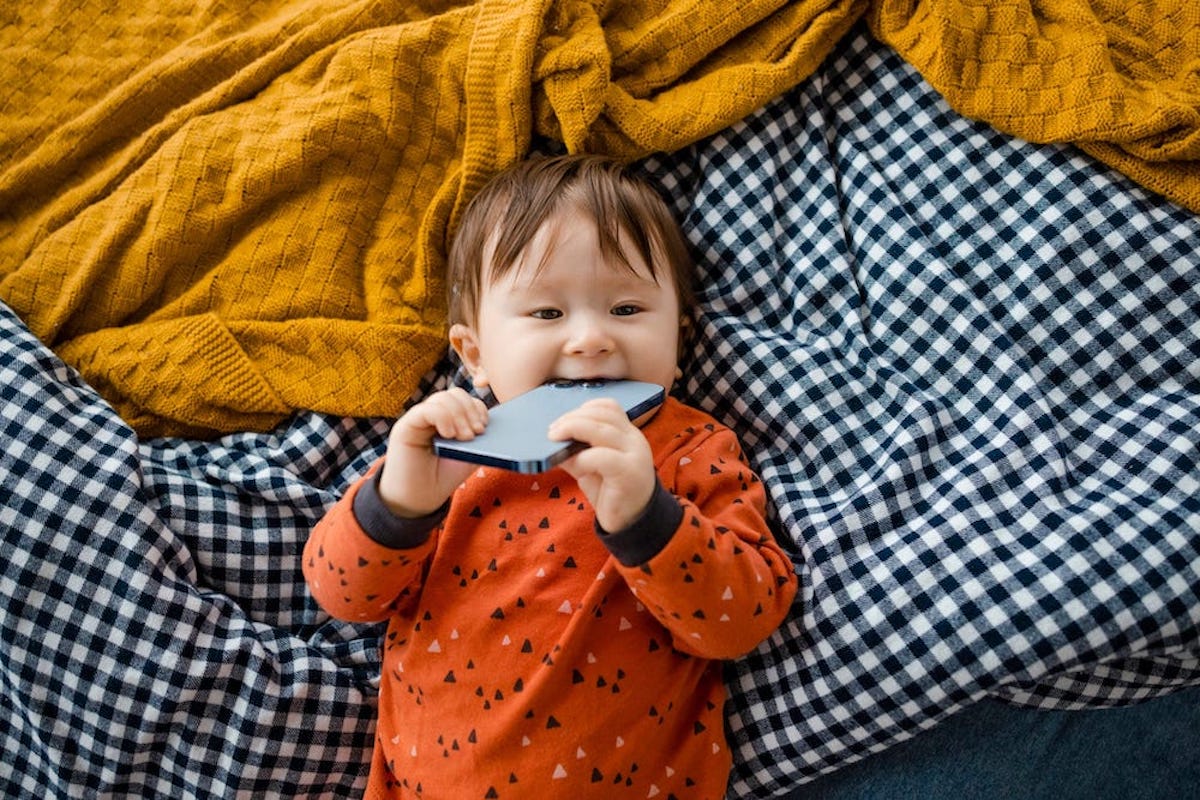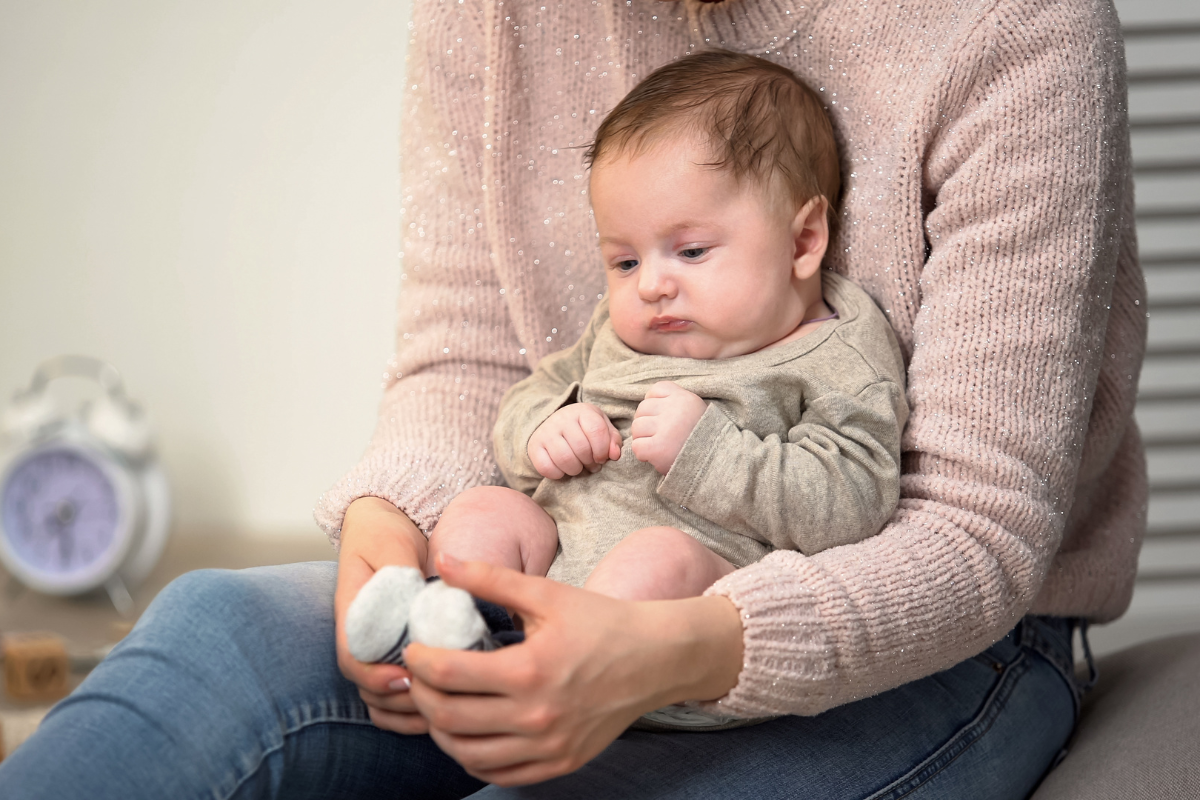When Penelope was born, we had a night nanny for several nights shortly after we got home from the hospital. This nanny enriched our lives by arriving and immediately insisting we were undercapitalized. The two things we needed, according to her, were Miracle Blankets and a white noise machine. Befitting the sleep deprivation of first-time parents, we blindly ordered several of each. Unlike many of the late-night Amazon purchases we made at this time, these were definitely not a waste. The Miracle Blankets survived through Finn, and the white noise machine became something we couldn’t live without, as we trucked it along everywhere we went.
(With the benefit of hindsight, I wonder if that was truly necessary. We were so obsessed with sleep and hanging on to what worked that I’m not sure we ever even tried going without it. A lost opportunity for self-experimentation.)
The supposed benefit of white noise is better sleep for infants. This is the idea behind the “shush” in Harvey Karp’s 5-S sleep solution, and it’s the reason the SNOO bassinet has an automatic white noise feature.
However, white noise is often a target of parental concern. You will hear claims that the noise can damage hearing and even cause developmental delays. This seems like a significant risk, but what does the data say?

Does white noise help sleep?
The data is limited, but it suggests yes. One randomized trial (run in the 1980s!) of 40 babies between 2 and 7 days old looked at whether the babies were more likely to fall asleep when exposed to a white noise machine. (It will be useful to know later, so I’ll note that the noise was about 70 decibels.) Among the 20 babies exposed to white noise, 80% of them fell asleep; among the 20 not exposed, it was only 25%. When the researchers turned on the white noise for the control group, 70% of the non-sleeping babies then fell asleep. This trial was small, of course, but those effects are very big.
A more recent trial, also of 40 babies, compared white noise with swinging in an effort to soothe colicky babies. The white noise significantly outperformed the swinging.
There are other, very small, studies like this one of four (!) 1-year-olds whose sleep improved when white noise (at 75 decibels) was introduced. White noise also has support as a sleep aid for adults and older children with sleep issues.
The upshot: There is a lot of reason to think white noise would help babies sleep.
Does white noise cause developmental delays?
To understand the claims about white noise impacting development, it is important to separate the impact of noisy environments (during the day) from the nighttime white noise that many infants and young children are exposed to. I want to start with the first part of this.
A very nice 2017 summary paper discusses the issue of noisy environments for young children. The authors make a few salient points. First, intermittent loud noises can be stressful for all individuals, not just children. For example, living near a train line or an airport, where you are unexpectedly and frequently exposed to very high-decibel noise, may be linked to stress and poor sleep.
Second, and more relevant to young children, the presence of significant background noise can impair language learning. Here’s how to think about this: Imagine that you’re a 2-year-old trying to learn to speak. You do this by hearing the words that adults and older children say around you, seeing how their mouths move, and absorbing this. If you’re in a loud environment all the time — a very loud classroom or a setting in which the television is playing loudly in the background all the time — it is harder to hear what is being said and harder to absorb it. There is experimental evidence from young children in laboratory settings showing that toddlers are less likely to learn new words in an environment with very loud background noise.
In this sense, “developmental delays” in language could be more likely to appear — and I say “could” because we do not have any credible epidemiological data that directly links later language development to being in a loud environment — if kids are growing up consistently exposed to loud background noise while they are awake and learning language.
This work, while I think it is reasonably compelling, is not usually the question parents come to this topic with. Normally, they are asking about white noise at night, not noisy environments in general.
Does white noise damage hearing?
Let’s start with the question of whether noise in general can damage hearing. The answer is yes. Occupational safety guidelines from OSHA require employers to institute safety measures if noise exposure is greater than 85 decibels for eight hours. How loud is that? I found this chart helpful. Eighty-five decibels is like a noisy restaurant; a vacuum is quieter. Stock car racing is very loud (seriously, I once went, and it’s insane). There’s probably a time to discuss the question of where the 85-decibel restriction comes from, but let’s stipulate for now that this is the level of concern.
Given this restriction, there was some alarm when a study came out in 2014 that evaluated a number of infant white noise machines and concluded that they might be too loud.
What the researchers actually did was take 14 baby-sleep white noise machines and evaluate the level of noise they produced when placed very close (in the crib) or more distant (the equivalent of next to the crib or across the room). They then measured the noise level produced by the machines at maximum volume. I thought their graphs were nice, so I put them below.
When the white noise machines were placed in the crib, the noise level for many of them was high — above 85 decibels. For two of the machines, the noise level exceeded that even with nearby placement. The across-the-room placement was quieter.
What the researchers conclude is that if you owned the loudest of these machines and they were right near the baby and were on at the maximum volume for eight hours a night, it would exceed safe noise exposure limits.
It is important to say that this paper did not look at hearing loss (or even include any babies at all), and we do not have, say, papers comparing hearing levels of babies with and without white noise exposure. The concern arises from the combination of these noise levels and what we know from other information (i.e., the information OSHA relies on to draw up its guidelines).
How can you know if the sound levels are safe?
If we look at the studies showing that white noise improves sleep, they are operating the noise at a decibel level of 70 to 75, which is below the levels of concern. In addition, these studies tend to focus on the value of noise in falling asleep. Given this, a first step is to try to generate a level of 70 to 75 decibels for the white noise you use. If you are still concerned that it’s too high, the second step would be to turn it down once the baby is asleep.
The only question, then, is how you would know the decibel level of the machine. Obviously, there’s an app for that, which uses your phone to measure decibel levels. You can load it up, put it in the crib (not with your baby!), and see what decibel level you’re getting with various settings on the white noise. You can titrate until you get it right. And if you want to err on the conservative side, you can do that too.
I was so excited to discover the app that I went up to the storage closet in our attic to test our white noise machine to see if we messed up. I was sad to learn that my husband had given away our entire collection of white noise machines in some kind of epic post-toddler purge. I did record myself walking around the house for a while (30 to 50 dB), some violin-playing (64.5 dB), and my kid yelling (one hundred million dB).
Closing thoughts
I often complain about observational studies where one thing is correlated with another. The evidence here doesn’t even come close to that low bar. There is nothing out there that shows a correlation between white noise at night and any kind of learning or auditory disorder, let alone a causal impact.
The scientific and medical literature on white noise is largely about how it can be used therapeutically to improve sleep in all kinds of populations (older adults, infants, kids with cancer, shift workers, etc.). Since we know how important sleep is, it’s very likely that if we looked at these correlations, they’d actually show white noise improving outcomes, simply due to better sleep.
The TL;DR on this is simple: At an appropriate volume, there are no evidence-based concerns about white noise. Do you have to use white noise? Of course not. You don’t have to do anything as a parent, and there are many good choices. But if white noise is working for your child and they’re sleeping well, keep it. In an ideal world, it will drown out the sound of the scaremongering Instagram reels.
The bottom line
- Claims about white noise negatively impacting speech development typically draw on studies about general noisy daytime environments, which could make it harder for young children to learn language (although there’s no clear proof that this causes long-term delays). However, these claims are unrelated to white noise while sleeping.
- Some white noise machines can exceed safe noise levels (especially when placed close to the baby at full volume), but there’s no direct evidence yet linking them to hearing damage in babies.
- As a general rule, it’s best to try to have your baby’s sound machine at a level of 70 to 75 decibels (you can use an app to check this). If you are still concerned that it’s too high, the second step would be to turn it down once the baby is asleep.
- At an appropriate volume, there are no evidence-based concerns about white noise.
















Log in
I appreciate you breaking this down for us. The AAP article, where they spoke with audiologists seems good to consider, as well.
I love that parents have options, but I see a number of parents who have the portable ones in the car seat, next to the baby’s head and have them turned on very loud and I also see them inside cribs, near baby’s head.
White, Brown and Pink Noise are a game changer for many, and understanding how we can prevent problems is important <3
I am really grateful for all the time you take to read and present all the research findings. I am expecting my first baby in a few weeks and having ParentData, along with reading Expecting Better and Crib Sheets, is an invaluable resource! I wonder if you could make the findings present in the graph clearer, either by adding a y-axis label or mentioning what the y-axis means in the text? Is it the number of machines at each level and placement? It seems not as this would mean more than 14 machines were studied. Another confusing statement: “For two of the machines, the noise level exceeded that even with nearby placement. The across-the-room placement was quieter.” I do not see this reflected in the graph as it looks like only the machines on the crib rail reached 85 decibels or above. Sorry to be nit-picky. I work in academic publishing so these things jump out at me!!
The other white noise question I have — though I imagine it would be hard to figure out how to run a study on this — is whether using white noise to help your kids sleep with foster a dependence on it in order to sleep. Will it make it harder for them to learn to sleep without white noise in normal environments?
My House is small and my girls share a room so white noise machines are 100 a just for us. My husband and I argue about the level I say 50db and he says 40 db we each read this “somewhere”. I assumed I read the 50db guidance on PD… but maybe not based on this article. 75 just seems very high…no??
“100% a must for us” stupid tired mommy typos
A respected lactiation consultant I follow said the AAP and WHO recommend no more than 50 decibels in white noise for infants. She sites this AAP article, but I have a hard time weeding through it. Thoughts? https://publications.aap.org/pediatrics/article/152/5/e2023063752/194468/Preventing-Excessive-Noise-Exposure-in-Infants